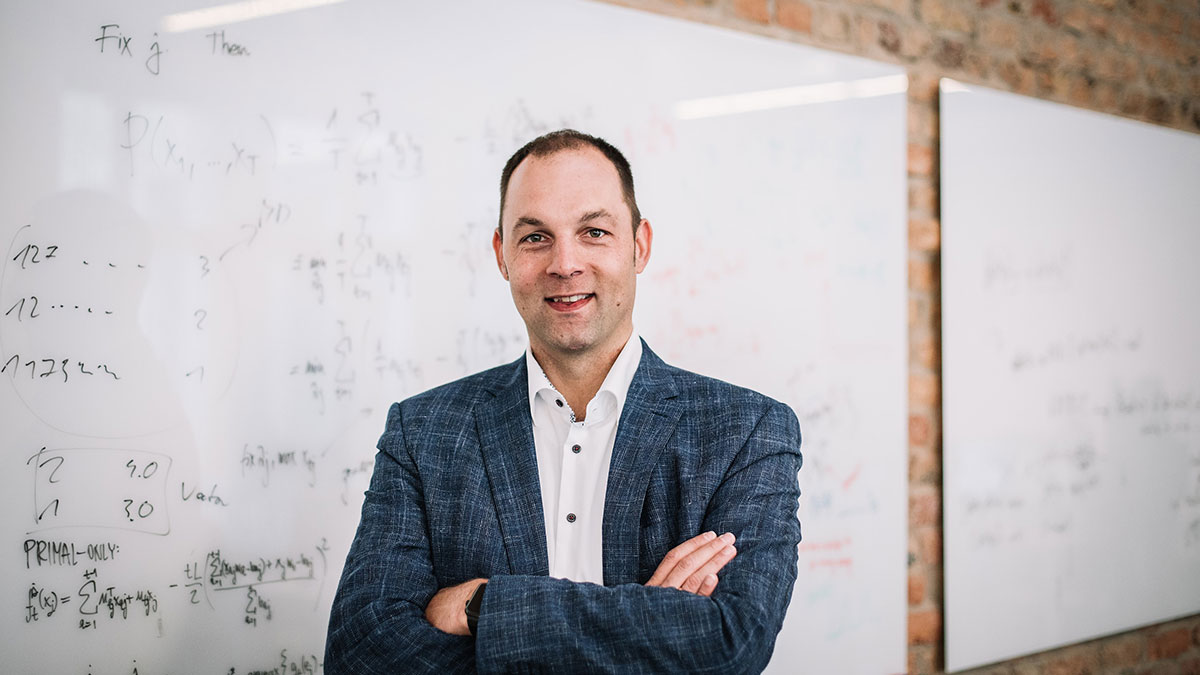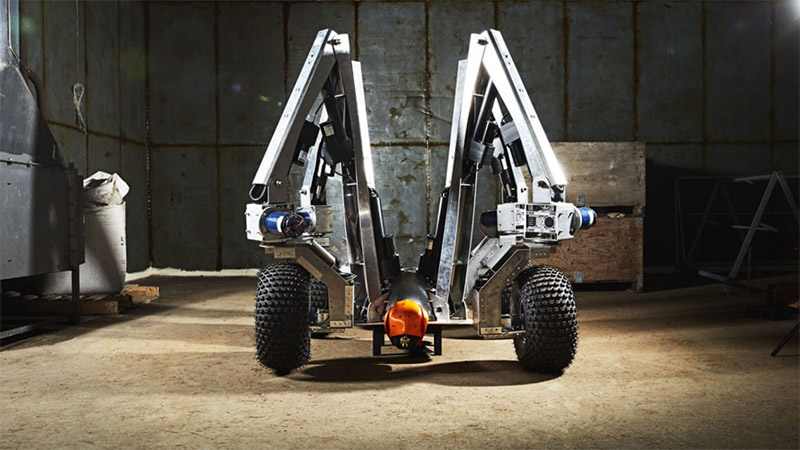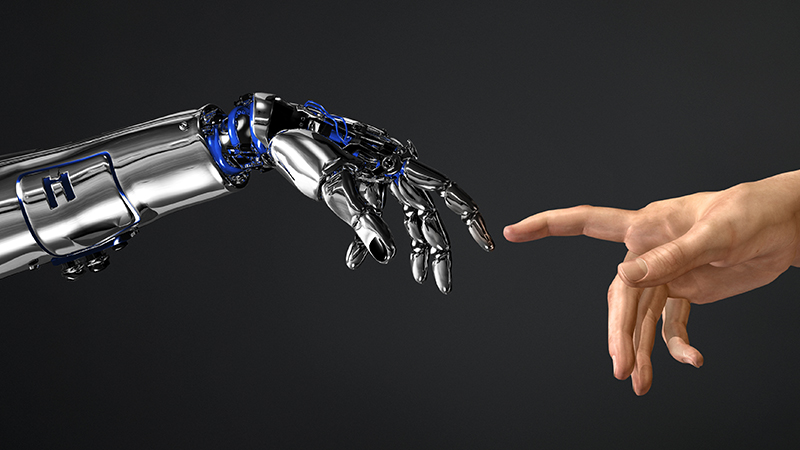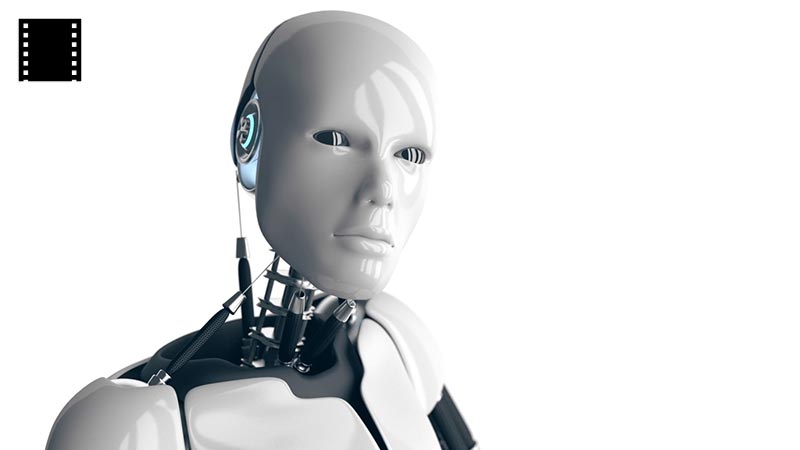How intelligent is Artificial Intelligence?
An interview with Dr. Ralf Herbrich, Director Amazon Machine Learning
Everyone knows Amazon from the customer's point of view – but what role are Amazon Research and innovative technologies playing in the success of the business? Dr. Ralf Herbrich about the diverse challenges and tasks in his area of responsibility.

Dr. Ralf Herbrich is Director of Amazon Machine Learning in Berlin © Amazon
Dr. Herbrich, we asked "Alexa" who Ralf Herbrich is. The answer that she came back with was "the inventor of the hairbrush". So may we ask you directly?
(Laughs.) Ralf Herbrich was born in East Germany, grew up on a farm, was always interested in mathematics and studied computer science at the time when things were really getting going with the Internet.
What exactly are you doing today at Amazon?
To put it in simple terms: Already at the time of the first search engines, it was becoming clear that anything that was digital could also be analyzed. And that meant that it would not be long before all of our personal and business information is digitally retrievable – our real-time heart rate, how fast we are running, blood glucose levels, adrenaline, or oxygen levels in the blood. At Amazon Machine Learning, we are trying to wipe the dust out of the data and filter out pure results. Algorithms are getting smarter, but what makes them really smart is the rules that bring all the content together. And these rules are written by us.
"We are wiping the dust out of the data"
How do you find and write these rules?
In the field of Artificial Intelligence we make use of mathematics, probability theory and statistics. But even the best statistics can’t gain real control over humans. The question, “When will machines be able to produce true consciousness?” will remain unanswered for a long time.
Give us an overview of your various research topics at Amazon.
On the commercial side, Amazon has already been active in Germany for twenty years, but the Research and Development area has existed in Germany only since 2013. We have different sites dedicated to this in Aachen, Dresden and Berlin. In Aachen and Berlin we are very research-oriented: Aachen in the field of speech recognition – for example for Amazon Alexa – and Berlin in the field of machine learning. In Dresden, we are developing cloud-based services for Amazon Web Services. In addition to the Berlin offices, Amazon’s machine learning operations are internationally represented in five other locations, namely in Bangalore, Seattle, Los Angeles, Cambridge and Barcelona.
Can you tell us some of the subjects that you are currently working on?
In Berlin, for example, we’re working on algorithms for predicting fashion demand. By this I mean that we are trying to track the fashion trends, colors and styles of tomorrow. These algorithms are being applied worldwide. With the launch of Amazon Fresh, our fresh food delivery service, we are developing these algorithms further, with a view to predicting the shelf life of perishable goods such as strawberries. In addition, we are trying to overcome language barriers. In Europe alone there are 26 main languages and countless dialects. Due to this linguistic diversity, digital content is currently limited to individual markets. The sheer amount of content simply makes it impossible to overcome everything with translators. This is definitely a big scientific challenge.
"We are exploring the fashion trends of tomorrow"
How do you evaluate the potential of an idea? Do you have clear criteria for doing this?
When we decide which topics we want to work on, we ask ourselves three simple questions: Does the idea lead to more choice for customers? Does the idea reduce costs for customers? And does the idea lead to more convenience for customers? The fact is that no customer wants less choice or higher prices. In the area of cost savings, a lot is still possible in my opinion. Ultimately, Amazon deals mostly in physical products, and as with any company in this business, this leads to storage costs. At the same time, the product portfolio continues to grow, and shorter delivery times require storage close to the customer. Amazon started out selling books and in the meantime has moved on to selling perishable foods through Amazon Fresh. Worldwide, between harvest and consumption one third of food products spoil in the supply chain; in the US that figure is even one half. And overall, of course, this affects prices. At Amazon, we’re supporting the development of advanced sensors and algorithms that can predict the durability of perishable goods and local demand. This saves us – and the customer – a lot of money.
What role do disruptive technologies play in your research?
Here, my answer is probably different from what you would expect. Amazon is primarily geared to the customer. The key question for our research area is therefore which customer problems we need to solve in the next three years and how we can optimally design the customer experience. For these problems, we are looking for appropriate technologies and then we’ll work on achieving the relevant scientific breakthroughs. So it's not primarily about technology, it's about making the shopping experience of our customers easier and more efficient.
Given the fact that your projects have long lead times, how do you ensure customer orientation?
At Amazon, every research project begins with a press release. This press release outlines how the customer issue is being resolved, what the added value of the solution is and in particular what the customer experience should look like. Normally you put together a press release at the end of a project: when everything is finished, you write the communiqué. We do it the other way around in order to make sure that we’re thinking consistently in terms of customer categories and that our solutions aren’t becoming unnecessarily complex. We don’t get lost in technical details this way. Our questions are: How do our customers perceive our solutions? How many customers will benefit from the solution? Is the solution too ambitious, too futuristic or too uncertain?
"Every project begins with a press release"
Artificial intelligence is already deciding what we see on the Internet and what books we buy, or showing us what our friends are doing. Do you have anything like an "emergency switch" in your programs if things go wrong?
Artificial intelligence is meant to support people in their decisions, not treat them like children. That's why our programs have a kind of evidence preservation feature. If we find that something deviates too much from previous predictions, then an employee will manually check the algorithm and see if there is an error somewhere in our calculations.
Will we eventually stop thinking for ourselves, thanks to Artificial Intelligence? Will Amazon have to stop doing any more research at some point because the robots have taken over?
No! Artificial Intelligence won’t relive us from thinking but will help us make better decisions. Or to put it another way: Smart machines will make us even smarter.
How much are algorithms, Big Data and Artificial Intelligence defining our lives today – and how much more will they define it tomorrow? Mathematicians, researchers, philosophers – each one of us, in fact – are seeking answers. This interview with Dr. Ralf Heberich is one of many contributions that are shedding light on the topic "Digital Society" from a new perspective. We are publishing them here as part of our series "Impact".
Our great sense of curiosity at Vontobel means we are attentively following scientific research in many key areas. This helps us recognize new investment opportunities early on. That's why our thematic portfolios and thematic investments also reflect megatrends such as digitization, as we consider companies that are making valuable contributions to solving global challenges.
I am interested in Vontobel thematic investments
I am interested in Vontobel funds








